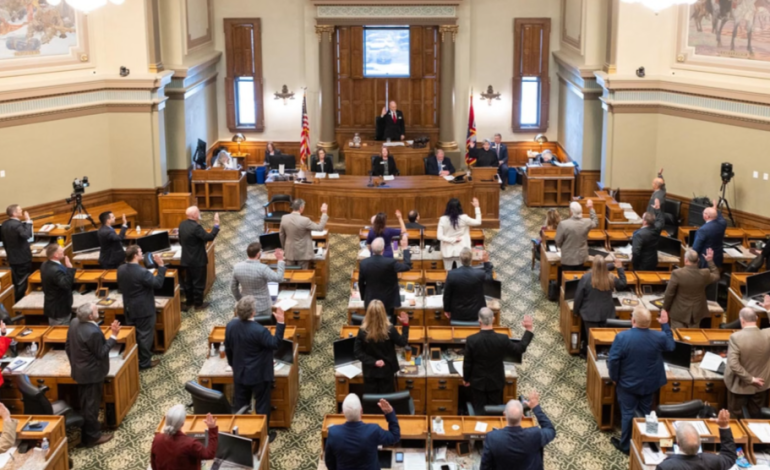With the start of Wyoming’s 2025 legislative session, the Freedom Caucus has officially taken control of the state’s House of Representatives.
This marks a significant milestone for the group, which has gained traction in statehouses across the nation, including in Missouri and Oklahoma, and now aims to enact a bold conservative agenda in Wyoming.
The Freedom Caucus, a movement that has gained influence in US politics since its founding in 2015, now looks to test its leadership abilities in Wyoming, the first state where its members have secured control of a chamber. The caucus intends to push through five priority bills in the first 10 days of the session, focusing on issues such as immigration, diversity initiatives, green energy, and property taxes.
“We are here to get the job done. The people have clearly given us a mandate,” said Chip Neiman, the newly elected Speaker of the House.
Neiman, who represents Hulett, was sworn in alongside other Freedom Caucus members, marking the beginning of their leadership role in the legislature.
The group’s agenda, known as the “Five and Dime Plan,” seeks to address key issues quickly. Among the proposed bills are measures requiring proof of US citizenship for voting, invalidating driver’s licenses issued by other states to illegal immigrants, and cutting property taxes by 25%. Additionally, the plan includes prohibiting state investments that prioritize green energy and dismantling diversity requirements in higher education.
While the Freedom Caucus has long operated as an opposition force within the Republican Party, often clashing with more moderate members, this session represents its first opportunity to lead and shape policy. Andrew Roth, president of the State Freedom Caucus Network, expressed hope that Wyoming’s success could serve as a model for other states, demonstrating that fulfilling campaign promises can strengthen voter support.
However, the caucus faces challenges, particularly in the form of potential tensions with Wyoming’s more traditionally conservative state Senate and Governor Mark Gordon. Governor Gordon, while open to cooperation, has previously vetoed Freedom Caucus-backed bills, including one to cut property taxes, and expressed reservations about the level of support for the caucus’ initiatives.
The Freedom Caucus’s rise has sparked significant debate, with some critics questioning the extent of its mandate. A low voter turnout in last year’s Republican primary has led some, including Democratic lawmakers like Rep. Karlee Provenza, to argue that the group’s agenda may not fully represent the wishes of the majority of Wyoming residents. Nonetheless, the caucus is determined to pursue its legislative priorities with vigor, hoping to make a lasting impact on the state.
With input from the Associated Press and Cowboy State Daily.









